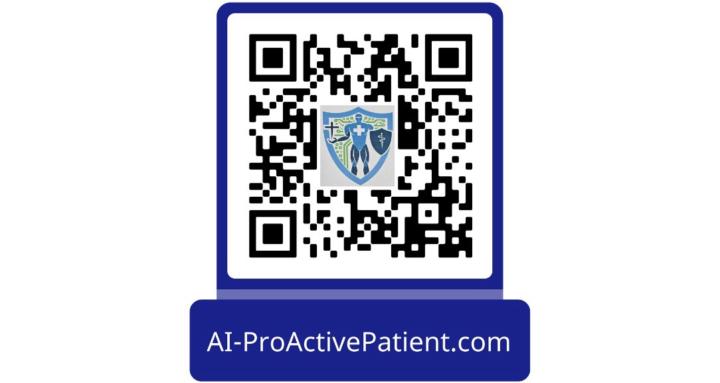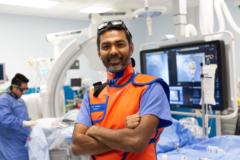
Write something
✅ Patient Prep Checklist Before Seeing a new specialist doctor (at least in the UK!)
I am not sure if you have a fully intergrated electronic record system in other places, but I always end up spending a lot of time of the consultation clarifying the details below in the UK. Walking into your appointment prepared can save time, prevent errors, and make sure you leave with real answers. Here’s a simple checklist to use every time: 1. Medications - 📋 Complete list of all medications, supplements, and vitamins. - 💊 Exact names + doses (not just “the small white pill”). - 🕒 When and how often you take them. - ⚠️ Any side effects you’ve noticed. 2. Recent Health Info - 🩸 Latest blood test results (printout or app screenshots). - 📈 Blood pressure or blood sugar logs (if you track them). - 💤 Notes on symptoms (when they started, how often, what makes them better/worse). 3. Medical History - 📚 Key diagnoses, past surgeries, or hospital visits. - 🧬 Family history updates (e.g. if a close relative had a new diagnosis). 4. Questions to Ask - ❓Write down your top 2–3 concerns before the appointment. - 🖊 Leave space to jot down answers. 5. Personal Details - 🍷 Lifestyle updates (changes in diet, exercise, smoking, alcohol). - 😴 Sleep or stress patterns that might be affecting your health. - 👉 Pro tip: Keep a “health binder” (or a digital folder on your phone) with all of this in one place. Bring it with you. Every time. Walking in prepared shows your doctor that you’re an active partner in your care. And the truth is — it often leads to better, safer decisions for your health.

PRO-ACTIVE PATIENT WELCOME
Welcome to The Proactive Patient Community! Hello and a warm welcome to every new member of The Proactive Patient community! We are so thrilled you’ve found your way here. This is more than just a group; it's a movement. It's a shared space for individuals who believe that the most important person in charge of their healthcare is themselves. Why This Community Exists How many times have you left a doctor's appointment with more questions than answers? Have you ever struggled to remember the exact results of a blood test from six months ago, or the name of that medication you tried but had to stop? You are not alone. The traditional model of healthcare often places us in a passive role: we receive instructions, diagnoses, and prescriptions. But what if we could change that? What if we could become active, informed, and empowered partners in our own care? This is our purpose. We are here to support each other in taking back control of our medical narratives. The Sobering Truth: Why Your Involvement is Critical Medical science is incredible, but the system delivering it is human and fallible. You may be surprised to learn that medical error is consistently reported as the third leading cause of death in the United States, after heart disease and cancer. Furthermore, numerous studies in medical journals suggest that the number of misdiagnoses and errors is likely severely underreported due to the fear of medical liability. This isn't about placing blame; it's about facing a reality that underscores one vital truth: your vigilance is your best defense. The New Frontier: Harnessing the Power of AI Today, we have a powerful new ally in our quest for accurate care: Artificial Intelligence (AI). AI is no longer science fiction; it's a practical tool that is already outperforming humans in specific medical tasks. - Diagnostic Accuracy: AI algorithms are now used to analyze X-rays, MRIs, and CT scans, often detecting subtle patterns of disease (like early-stage tumors or fractures) that the human eye can miss. Studies have shown AI models achieving diagnostic accuracy rates that meet or exceed those of trained radiologists. - Medication Analysis: AI systems can cross-reference your full list of medications and supplements to flag dangerous interactions, duplicate therapies, or potential side effects with a comprehensiveness impossible to expect from any single busy physician. - Clinical History and Diagnosis: Perhaps most relevant to us is the emergence of AI diagnostic assistants. For example, in a 2024 study published in JAMA Internal Medicine, an AI system (based on a large language model) was pitted against human primary care doctors in answering real patient questions. Board-certified clinicians evaluated the responses and found the AI’s answers to be of higher quality and more empathetic than the doctors' in the majority of cases. - Medical Licensing: The capabilities of AI are so advanced that certain models, like those similar to the one powering the diagnostic tool Annie (previously known as "Amy" in some iterations), have been tested on the US Medical Licensing Exam (USMLE). These AI systems have not only passed but have achieved scores that rank at or above the level of a passing medical student, demonstrating a vast knowledge base and clinical reasoning capability.
1-2 of 2
powered by

skool.com/ai-proactivepatient-4500
The future of medicine is AI-powered. Analyze your own data to become a proactive patient, prevent misdiagnosis, and partner smarter with your doctor.
Suggested communities
Powered by

